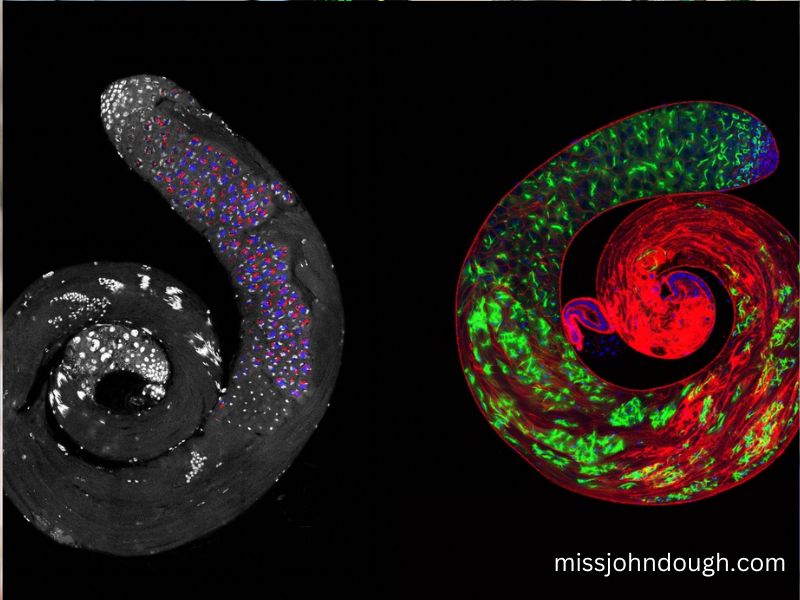In recent years, the concept of immortality has captivated the minds of scientists, philosophers, and spiritualists alike. This fascination stems from the age-old desire to conquer death and extend life indefinitely. One term that frequently emerges in discussions about immortality is “the germ of the immortal body.” This phrase, though somewhat abstract, touches upon the potential biological mechanisms and metaphysical beliefs tied to the idea of eternal life. In this article, we will explore what the “germ of the immortal body” refers to, examine the scientific theories related to it, and discuss its implications for the future of human life.
The Meaning Behind “The Germ of the Immortal Body”
The phrase “the germ of the immortal body” evokes images of a seed or essence that could hold the key to immortality. Germs, in biological terms, represent the reproductive cells that give life to new organisms. Metaphorically, the “germ” of immortality could refer to the foundation within the human body that allows life to perpetuate indefinitely. This germ is believed to exist within each of us, holding the potential for an immortal existence.
Throughout history, various cultures and belief systems have mentioned concepts akin to the “germ of the immortal body.” For example, many ancient religious texts speak of a divine essence or soul that transcends death. In a more modern context, scientific research into genetics and cellular regeneration has fueled speculation about whether the key to immortality lies within our biological makeup.
Scientific Theories on Immortality
In the realm of science, researchers have long sought to uncover the mechanisms behind aging and the possibility of halting or even reversing the process. At the heart of this inquiry is the idea that within the human body, there may exist mechanisms—or “germs”—that could unlock immortality. Some of the leading scientific theories on immortality include:
- Telomeres and Cellular Aging: Telomeres are protective caps located at the ends of chromosomes. As cells divide, these telomeres shorten, leading to cellular aging and eventually cell death. Some scientists believe that extending telomere length or preventing their shortening could halt aging and potentially lead to immortality. The “germ of the immortal body,” in this context, could be linked to telomere preservation.
- Stem Cells and Regeneration: Stem cells have the remarkable ability to differentiate into any cell type in the body, allowing for tissue repair and regeneration. In theory, if the body could continuously generate new cells and repair itself indefinitely, aging could be halted, leading to a form of biological immortality. The “germ” of immortality could be represented by the body’s inherent regenerative capacity.
- Genetic Engineering: Advances in genetic engineering, including technologies like CRISPR, have opened the door to manipulating human DNA. Some researchers are exploring the possibility of altering genes responsible for aging, allowing humans to live longer, healthier lives. The germ of the immortal body, in this case, could be found in the manipulation of genetic codes that govern life span.
- Nanotechnology and Cellular Repair: Nanotechnology offers the potential for microscopic robots to enter the human body and repair damaged cells at the molecular level. This futuristic approach to immortality involves keeping the body in a state of perpetual repair, allowing it to function indefinitely. The germ of the immortal body could be understood as the technological advancements that enable cellular repair on a continuous basis.
Metaphysical Interpretations
While science seeks to explain immortality through biological and technological means, many spiritual and metaphysical traditions have their own interpretations of the “germ of the immortal body.” In these traditions, immortality is often viewed not just as a physical state but as a spiritual one, involving the transcendence of the soul beyond the material world.
- Eastern Philosophies: In some Eastern traditions, particularly within Hinduism and Buddhism, the concept of immortality is tied to spiritual enlightenment. The body is seen as impermanent, but the soul or consciousness can achieve immortality through cycles of reincarnation or by attaining moksha (liberation from the cycle of birth and death). The “germ” in this case represents the soul’s journey towards spiritual immortality.
- Western Mysticism: Western esoteric traditions, such as Hermeticism and Gnosticism, also speak of an inner essence or divine spark within humans that is immortal. This germ is believed to be the key to unlocking higher states of consciousness and eternal life. Mystics throughout history have sought ways to access this divine essence and achieve immortality, often through alchemical or spiritual practices.
- Religious Beliefs: Many religious teachings speak of an afterlife where believers experience eternal life in heaven or another spiritual realm. In Christianity, for example, the concept of the resurrection of the body plays a central role in beliefs about immortality. Here, the “germ of the immortal body” could symbolize the soul’s eternal connection to the divine, ensuring life after death.
The Future of Immortality
As science progresses, the pursuit of immortality becomes less of a fantasy and more of a tangible goal. Researchers in the fields of biotechnology, medicine, and artificial intelligence are constantly pushing the boundaries of what is possible, and the dream of eternal life may one day become a reality.
The germ of the immortal body could be viewed as the combination of all these scientific advancements and metaphysical beliefs, coming together to unlock the potential for humans to live forever. Some futurists predict that within the next century, humans will be able to significantly extend their lifespans, if not achieve full immortality.
- Cryonics: Cryonics involves freezing the body after death in the hope that future technologies will allow for resurrection. The belief here is that death is simply a pause in life, and the germ of the immortal body lies in the ability to restart life once technology has advanced enough to do so.
- Mind Uploading: Another futuristic idea involves the concept of mind uploading, where a person’s consciousness is transferred into a digital medium. While the physical body may not survive, the essence of the individual—their thoughts, memories, and personality—could live on indefinitely in a digital form.
- Biological Immortality: Biological immortality refers to a state where the body does not age or succumb to disease. This could be achieved through advancements in regenerative medicine, anti-aging therapies, or genetic engineering. The germ of the immortal body in this case would be the biological processes that prevent aging altogether.
Conclusion
The concept of “the germ of the immortal body” is a multifaceted one, encompassing both scientific and spiritual interpretations of immortality. While science strives to unlock the biological mechanisms that could halt aging and extend life, metaphysical traditions offer a more transcendental view of eternal life. Whether immortality is achieved through technological breakthroughs, genetic manipulation, or spiritual enlightenment, the pursuit of eternal life continues to captivate the human imagination.
As we explore the mysteries of the “germ of the immortal body,” we move closer to understanding the true potential of life—and perhaps, one day, unlocking the secret to immortality.


